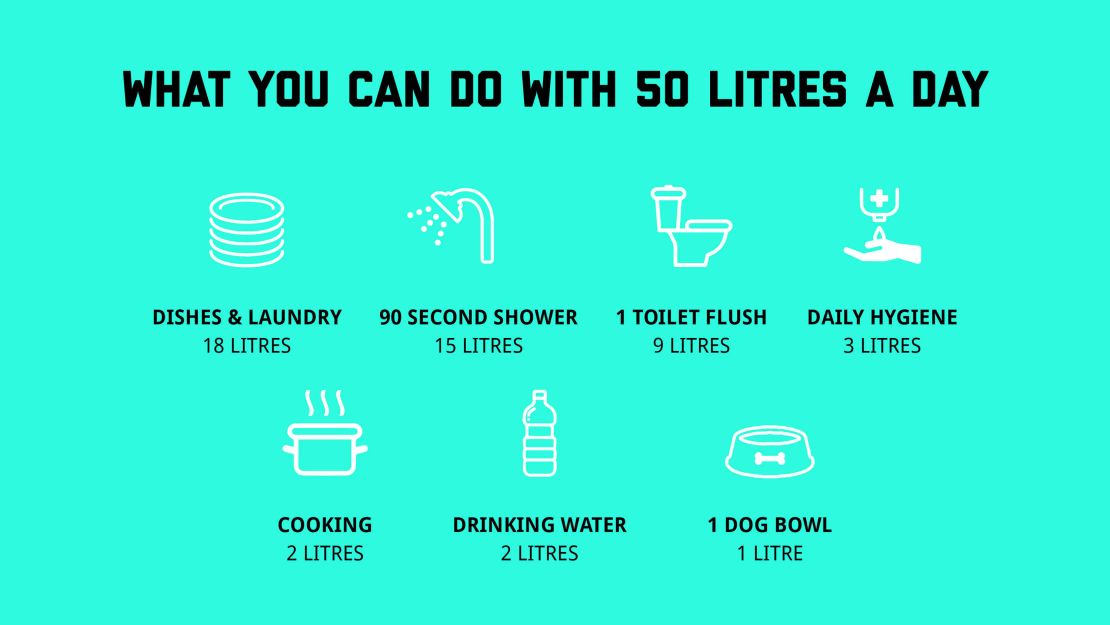The day that taps in drought-hit Cape Town are forecast to run dry has been pushed back another month to July 9, authorities in the South African city announced on Tuesday.
“Day Zero” has been periodically pushed back following rain and the implementation of water-saving measures across the city and the surrounding region.
At one point, South Africa’s second most populous city had previously been expected to run out of water on April 12. The date has since been delayed a number of times, most recently to June 4.
“The reduced consumption that continues to be sustained by Capetonians is the primary reason that we are able to celebrate this achievement this week,” Mmusi Maimane, leader of the opposition Democratic Alliance party, said in a statement.
Emergency water restrictions are still in place. Residents being asked to limit their daily use of municipal water to just 50 liters (a little over 13 gallons) a day. In a bid to thwart the impending disaster, experts are closely monitoring consumption habits, while residents face fines and the installation of water management meters if they exceed allocated supplies.
“While we have not yet reached the target of 450 megaliters per day, we have together brought down our daily usage by 3 megaliters which is an encouraging step in the right direction. Over the past week, consumption has averaged 523 ML per day,” Maimane said.
Maimane also expressedgratitude to farmers from Groenland for transferring water from their private reservoirs to help replenish dwindling supplies in the Steenbras storage dam last week.
Previously, the agricultural sector – which uses the same supply system the city draws its water from – had used up its allocation, resulting in a drop over the coming weeks.

CNN’s Sheena McKenzie contributed to this report.


